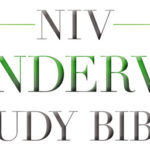• The BaptistWay lesson for June 1 focuses on Psalm 119:9-16; Acts 17:10-12; and 2 Timothy 3:14-17.
We just kicked off a study called “Bible Reading 101” on Wednesday nights at our church. We do not give people driver’s licenses without first teaching them how to operate a motor vehicle; likewise, we should not give people Bibles without instructing them on how to read it.
Unfortunately, that happens too often. When people accept Jesus as Savior, we celebrate with them and tell them to read their Bibles, pray and go to church, so they will grow in a relationship with Christ. The last two things are by no means easy, but they can become ingrained habits when we continually participate in them alongside other Christians. Bible reading, however, is different. It’s not a habit we can pick up from others. It requires deeper understanding and awareness in order to prove fruitful in our lives.
The nature of Scripture
Perhaps the best place to start in understanding Scripture is the very nature of Scripture itself. 2 Timothy 3:16 speaks of Scripture as being “God-breathed,” or inspired. This has caused Christianity to hold a view about its holy book most other religions do not espouse. We not only believe it contains good instructions to live by, but the human authors were inspired by God to record divine revelation. In other words, we acknowledge both the divine origin as well as the human medium that influences Scripture.
Greg Boyd captures this nicely in Letters from a Skeptic in a question he poses to his atheist father: “Amidst the incredible diversity of authors, perspectives, cultures, circumstances, times, worldviews and literary genres, the Bible constitutes a unified song about redemption. In the same way that the diversity of Scripture testifies to its diverse authorship, doesn’t the overwhelming unity of Scripture testify to an encompassing divine authorship?”
The first thing you notice when flipping through the Bible is the vast number of books it contains. Since these books come from varying time periods and different human perspectives, a set of unifying principles is necessary to guide us in interpreting the Bible as God’s word. In Grasping God’s Word, Scott Duvall and Daniel Hays provide four questions to ask that serve to undergird the process of interpretation: (1) What did the text mean to the biblical audience? (2) What are the differences between the biblical audience and us? (3) What is the theological principle in the text? (4) How should individual Christians today apply the theological principle in their lives?
The message of Scripture
This leads us to another aspect often lost when Christians attempt to study the Bible—the overall message of the book. We can get bogged down in so many details we miss the overall story of redemption and salvation. A church member sent a text message asking about a passage in Exodus that stipulates death for those that violate the Sabbath. “Isn’t that a little harsh?” she asked. Indeed it is.
Sign up for our weekly edition and get all our headlines in your inbox on Thursdays
It’s difficult to square verses like this with the New Testament’s emphasis on God as love. I’ve heard it said : The Old Testament shows us what we deserve from God, while the New Testament shows us the character of God. The Baptist Faith and Message (1963) states, “The criterion by which the Bible is to be interpreted is Jesus Christ,” because Jesus is the embodiment of God’s character.
Acts 17:11-12 records how the Bereans examined the Scriptures to see if what they were saying was true. Their conclusion also is the conclusion of orthodox Christianity: The overall message of Scripture by which everything should be measured is salvation made possible through the life, death and resurrection of Jesus Christ.
The usefulness of Scripture
Finally, we would be remiss if we did not mention the value of Scripture in our everyday lives. It’s possible to affirm its divine nature, as well as its promise of salvation, while also failing to incorporate any of what it says in our day-to-day activities. If you’ve gone to Vacation Bible School lately, you’ve heard the pledge to the Bible. The very end of the pledge borrows a line from Psalm 119:11: “I have hidden your word in my heart that I might not sin against you.”
While the overall message of Scripture concerns our eternal salvation, the individual stories of Scripture revolve around the idea of living lives pleasing to God. People often turn to the Bible for other reasons (encouragement, inspiration, scholarly curiosity, etc.), but we must remember it was given to us to address something above our own feelings of pleasure or enjoyment. It was given to us to make us holy, and that should be our first goal in turning to it daily in spite of what we might be facing or feeling.
The greatest tip I ever got for studying the Bible was “quality of quantity.” If you believe these statements about the nature, message and usefulness of Scripture, there is no obligation to read all of it in any prescribed time. God’s word is God’s word, regardless of how much of it you are studying. Spend time in it, and let it speak to you.













We seek to connect God’s story and God’s people around the world. To learn more about God’s story, click here.
Send comments and feedback to Eric Black, our editor. For comments to be published, please specify “letter to the editor.” Maximum length for publication is 300 words.